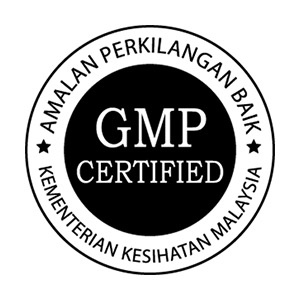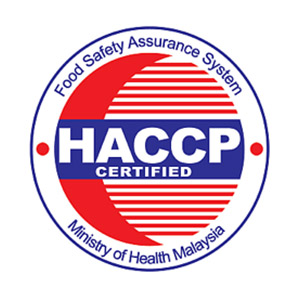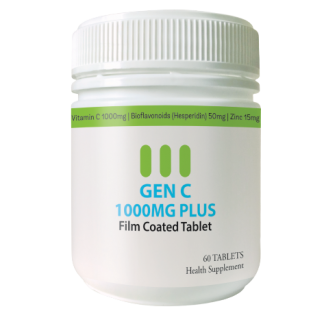Recognised & Approved Manufacturers with certifications
All our products are manufactured by world reknown manufacturers specialising in-depth research on active ingredients important for the human body's wellbeing.
Extremely affordable supplements without cutting corners.
We remove the middleman to reduce cost as much as possible for the end-consumer, therefore making our product highly competitive in the world market.
Keeping it simple and focused.
We have a minimalist approach in developing our products, simply by focusing on the desired outcome of the product itself and not on fancy branding and marketing exercises. That means we spend more on the ingredients being placed in the final product, ensuring they are of highest quality.
OUR PRODUCTS
Everly Vitamins contain no added preservatives or artificial flavours or sweeteners.
BENEFITS OF TAKING VITAMIN C & OMEGA 3
Vitamin C is needed for the growth and repair of tissues in all parts of your body. It is used to:
- Form an important protein used to make skin, tendons, ligaments, and blood vessels
- Heal wounds and form scar tissue
- Repair and maintain cartilage, bones, and teeth
- Aid in the absorption of iron
Vitamin C is a potent antioxidant. Antioxidants are nutrients that block some of the damage caused by free radicals:
- Free radicals are made when your body breaks down food or when you are exposed to tobacco smoke or radiation.
- The build-up of free radicals over time is largely responsible for the aging process.
- Free radicals may play a role in cancer, heart disease, and conditions like arthritis.
Vitamin C can boost our immune system by stimulating the production of white blood cell lymphocytes and phagocytes, which help protect the body against infections. It also helps the white blood cells to function more effectively and protects them from damage.
Omega 3 (5oomg EPA, 250mg DHA) improves heart health, cognitive function & overall well-being of your body. It promotes:
- Cardiovascular Health: Omega-3s, particularly EPA, are renowned for their ability to reduce triglyceride levels, lower blood pressure, and prevent the buildup of plaque in the arteries, thereby promoting a healthy heart and reducing the risk of cardiovascular diseases
- Brain Health and Cognitive Function: DHA is a crucial building block of brain tissue, especially in the hippocampus, which plays a vital role in memory and learning. Regular intake of DHA can help improve cognitive function, support memory retention, and reduce the risk of age-related cognitive decline, including Alzheimer’s disease
- Eye Health: DHA is essential for maintaining the health of your retina, supporting clear vision and reducing the risk of age-related macular degeneration (AMD) and other eye-related conditions. Omega-3s have also been shown to alleviate dry eye symptoms
- Joint Health and Inflammation: EPA has strong anti-inflammatory effects, which can help reduce the symptoms of conditions like arthritis. Omega-3s can also enhance joint lubrication, improve mobility, and reduce joint pain and stiffness
- Mood and Mental Health: Omega-3s, especially EPA, are linked to improved mood regulation. They may help reduce the symptoms of depression, anxiety, and stress, and can support overall emotional well-being
- Skin Health: Omega-3s are beneficial for maintaining skin hydration, reducing inflammation, and protecting against skin damage from sun exposure. They can also improve the appearance of dry, flaky skin
GEN MARINE Omega 3 has 500mg EPA and 250mg DHA which is 3 times more than regular Omega 3 potency seen in other products.
WHO SHOULD TAKE VITAMIN C & OMEGA 3
GEN C 1000MG Plus is fortified with Zinc & Bioflavonoids
Zinc & its Benefits
Zinc is an essential mineral and since our body does not store excess zinc, it must be consumed regularly as part of the diet. Zinc helps:
- Improves immune function
- Reduce inflammation
- Improves skin condition such as acne and eczema
- Protect against respiratory tract infection such as cold, sore throat and nasal congestion
- Prevent hair loss
- Control blood sugar and keep it steady, to avoid diabetes
- Improves sexual health in men and women
Hesperidin Bioflavonoids & its Benefits
Hesperidin is a bioflavonoid, a type of plant pigment with antioxidant and anti-inflammatory effects found mainly in citrus fruits.
It is a natural remedy for several health problems such as allergies, haemorrhoids, high blood pressure, sinusitis and improve blood circulations.
When Vitamin C is added with Hesperidin bioflavonoids, it will enhance the actions of Vitamin C and increase the absorption of Vitamin C in our body.
GEN MARINE OMEGA 3 HAS HIGH POTENCY OF 500MG EPA & 250MG DHA
- High Potency: Each capsule contains 1000mg of Omega-3 Fish Oil, delivering 500mg DHA and 250mg EPA – a potent dose to support optimal health.
- Purity and Quality: Our Omega-3 Fish Oil is sourced from premium, wild-caught fish, ensuring it’s free from harmful contaminants like mercury.
- Easy to Take: With convenient softgel capsules, our Omega-3 Fish Oil is simple to incorporate into your daily routine.
- Sustainably Sourced: We prioritize sustainability in our fish oil sourcing, ensuring that our products are eco-friendly and responsibly harvested.
Omega-3 Fatty Acids are essential fats that our bodies cannot produce on their own, which means we must obtain them through our diet or supplements. Omega-3s are polyunsaturated fats that are integral to many of the body’s essential functions, including brain health, inflammation regulation, and heart function.
DHA and EPA are primarily found in marine-based sources, such as fish oil.
DHA (Docosahexaenoic Acid): DHA is a long-chain Omega-3 fatty acid that is primarily concentrated in the brain and retina. It is a critical component of brain tissue and is known for supporting cognitive function, eye health, and reducing the risk of neurodegenerative diseases.
EPA (Eicosapentaenoic Acid): EPA is primarily known for its anti-inflammatory properties. It helps regulate inflammation in the body and supports heart health by reducing triglyceride levels and promoting optimal cardiovascular function.
All our manufacturing facility is accredited with:

Good Manufacturing Practice (GMP) is a system for ensuring that products are consistently produced and controlled according to quality standards. It is designed to minimize the risks involved in any pharmaceutical production

Hazard analysis and critical control points (HACCP) is a systematic preventive approach to ensure the food is safe from biological, chemical, physical hazards and radiological hazards in production processes.
GET IN TOUCH
Everly Health Sdn. Bhd. (1389064-V)
13A-1, Pusat Dagangan PJS Jalan PJS 5/28A 46150 Petaling Jaya, Selangor, Malaysia.
Tel: +603 7496 7597
Email: info@everlyvitamin.com
PRODUCTS
Products
-
 GEN MARINE OMEGA 3
Rated 0 out of 5
GEN MARINE OMEGA 3
Rated 0 out of 5 -
 GEN C 1000MG PLUS
Rated 0 out of 5
GEN C 1000MG PLUS
Rated 0 out of 5












